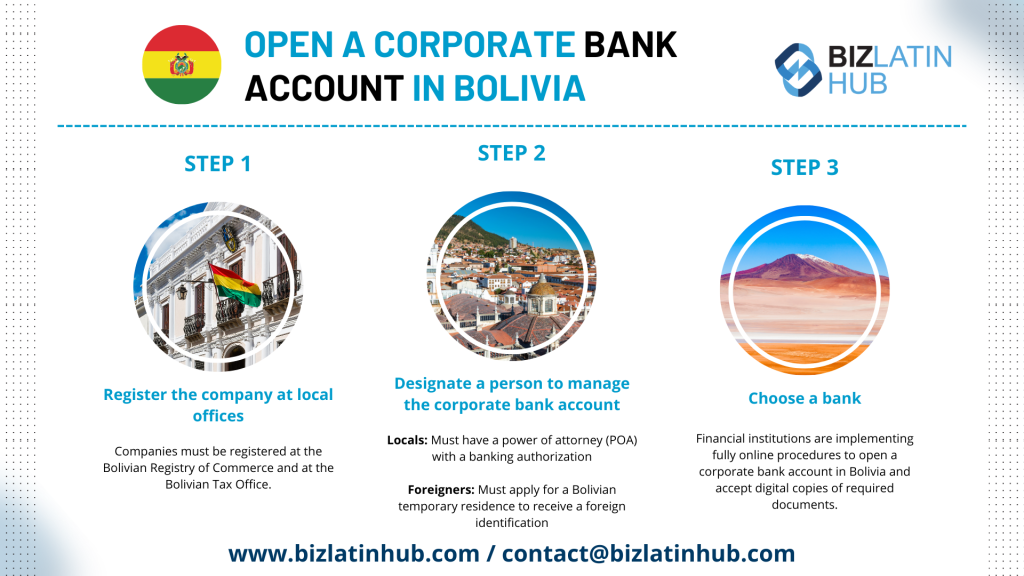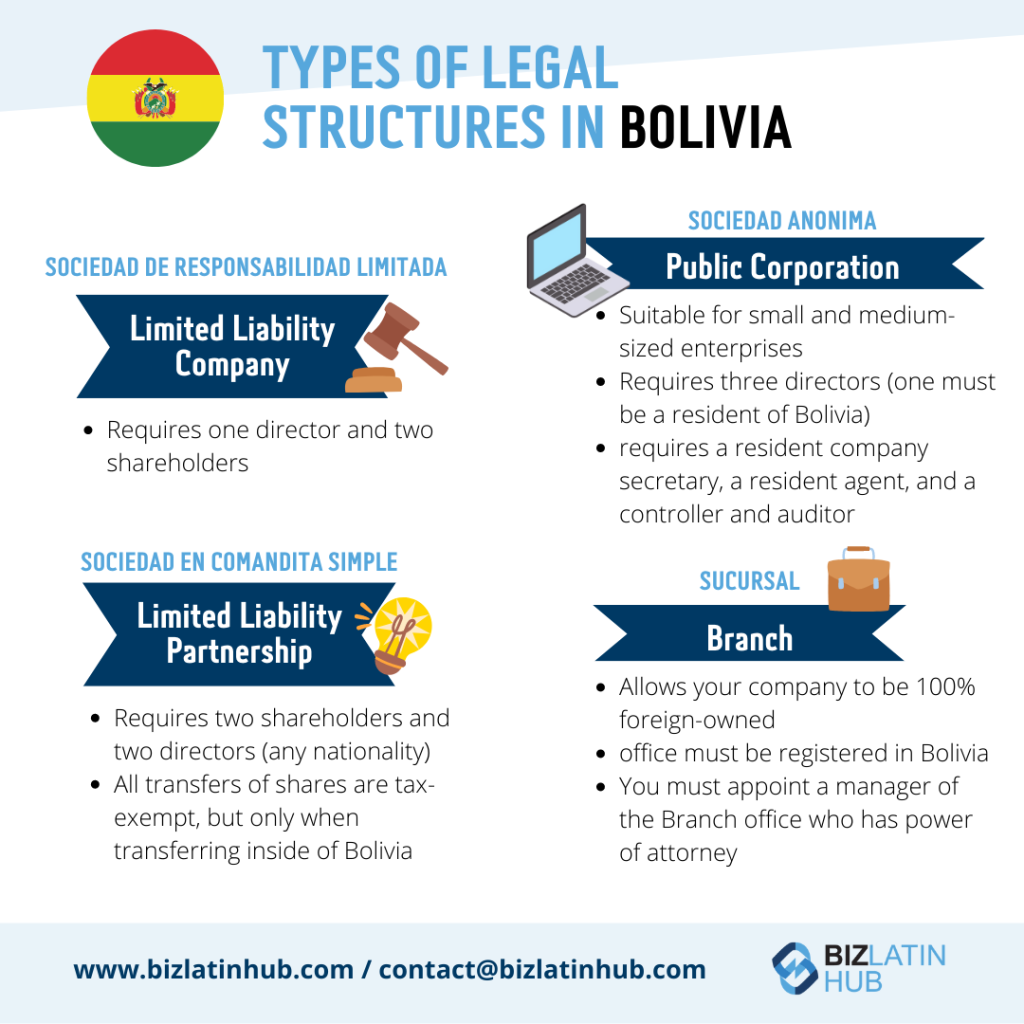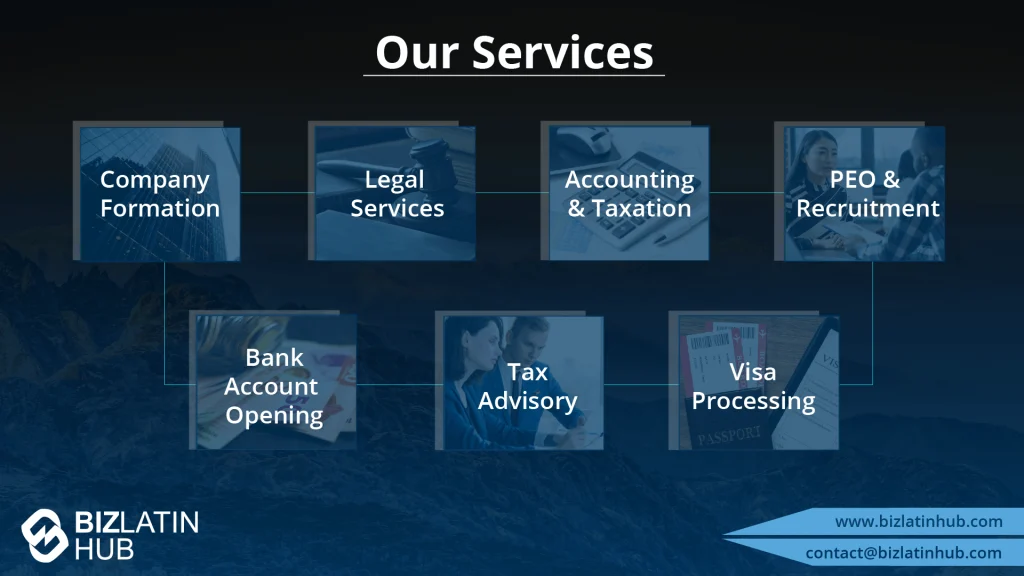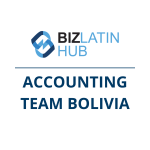Bolivia is one of the fastest growing economies in Latin America, and smart and forward-looking foreign investors and companies are giving the land-locked country a closer look in terms of doing business there. Bolivia outperformed its neighbors in 2022, seeing GDP growth of 3.9 percent, and is forecasted to grow by 4.8 percent in 2023. The flow of FDI into the country is also on the rise; all this means that we can expect an influx of foreign businesses incorporating in the country, and those newcomers will set their sights on banking in Bolivia.
But if there’s one thing that characterizes banking in Bolivia, it’s state intervention and taxes, taxes, taxes. Tax on the buying and selling of the US dollar, taxes on a bank’s profits, and taxes on any money leaving the country. There is even a tax on transfers between one Bolivian bank to another. The goal of all this, we are assured, is to stimulate economic growth.
If there’s one silver lining to the high degree of state intervention into the Bolivian banking system, it’s that these tax burdens are incurred almost exclusively by the banks themselves. By law, the costs cannot be passed onto the customer through high interest rates or fees. Interest rates are set by the state-run financial institution called the Productive Development Bank (BDP), and is used to provide low-rate loans to small and medium-sized enterprises (SMEs).
For foreign entities, the steps to open a corporate bank account in Bolivia are relatively straight forward.

Banking in Bolivia: List of commercial banks in the country
Bolivia’s banking system is made up of the Central Bank, the state-run BDP, and 13 privately-owned commercial banks, where foreigners can open corporate bank accounts. The complete list is as follows:
- Banco Bisa
- Banco de Crédito (BCP)
- Banco Económico
- Banco Fassil
- Banco Fie
- Banco Fortaleza
- Banco Ganadero
- Banco Mercantil Santa Cruz
- Banco de la Nación Argentina
- Banco Nacional de Bolivia (BNB)
- Banco Prodem
- BancoSol Bank
- Banco Unión
SEE ALSO: Professionals Boosting Technology and Innovation in Bolivia
When thinking about innovations in the financial sector and/or banking in Bolivia, one may notice that they’re not really innovative at all – in the developed world, that is. But things like “neobank” fintech startups, microcredit loans given to lower-income Bolivians, and what’s commonly referred to as the digital transformation are indeed innovative for Bolivia – a late adopter in many respects.
Banking in Bolivia: Some of the latest innovations
- Small loan applications (microfinance) made online
- Smartphone-based mobile wallet banking/purchases
- ‘Gamification’ to draw in new adopters
- Neobank startups offering 100% online services
- Traditional banks moving slowly toward digital transformation
Top-5 innovations for banking in Bolivia
The following innovations in banking have made making transactions and requesting small business capital much more convenient for Bolivians than they are in traditional banks.
1. Microfinance loan applications made online
If there’s innovation in the Bolivian banking industry, it’s in providing microfinance to small businesses – but digitally. Banks have partnered with the non-profit groups to offer low-interest loans to small business owners and customers – so long as they have a mobile device.
2. Smartphone-based mobile wallet banking/purchases
The popularity of mobile-based apps has exploded, and is changing the way banking is done in Bolivia. The so-called mobile wallets they provide are not tied to the more traditional brick-and-mortar banks, but through digital startups in the country. It allows users to send and receive payments, pay bills and transfer money all from a user’s smartphone.
3. ‘Gamification’ scheme to attract new adopters
The aforementioned bank that offers microfinancing to small businesses also employs a gamification strategy to attract new users to the app and keep current users loyal. Users can earn points and play mini-games within the app for rewards and a chance to win prizes. With this strategy, BancoSol bank was able to get 40 percent of its account holders to make the digital transformation.
4. The rise of ‘neobanks’ offering 100% online services
So-called ‘neobanks’ have been a rising trend in Bolivia and elsewhere in the region. Why have Bolivians in general, and Latin Americans in particular, been so receptive to the services offered by neobanks and other fintechs? In a word, inclusivity. People with lower incomes have been ignored or neglected by the traditional banks, meaning that 50 percent of Bolivians don’t have access to a traditional bank account. The rise of neobanks represents a sea-change to banking in Bolivia, allowing people to bypass traditional banks in order to participate in the financial system.

5. Traditional banks are late to digital transformation
As is normally the case, banks are reluctant to move from their dominant position. While online banking has been around for decades, banks in Bolivia have only recently realized that they too must succumb to the grand digital transformation if they are to stay relevant. Most traditional brick-and-mortar banks now have online platforms where Bolivian account holders can make transactions, open new accounts or apply for debit/credit cards.
Biz Latin Hub can help you with banking in Bolivia
At Biz Latin Hub, we provide integrated market entry and back-office services throughout Latin America and the Caribbean, with offices in Bogota and Cartagena, as well as over a dozen other major cities in the region. We also have trusted partners in many other markets.
Our unrivaled reach means we are ideally placed to support multi-jurisdiction market entries and cross border operations.
As well as knowledge about banking in Bolivia, our portfolio of services includes hiring & PEO accounting & taxation, company formation, bank account opening, and corporate legal services.
Contact us today to find out more about how we can assist you in finding top talent, or otherwise do business in Latin America and the Caribbean.
If this article on banking in Bolivia was of interest to you, check out the rest of our coverage of the region. Or read about our team and expert authors.





